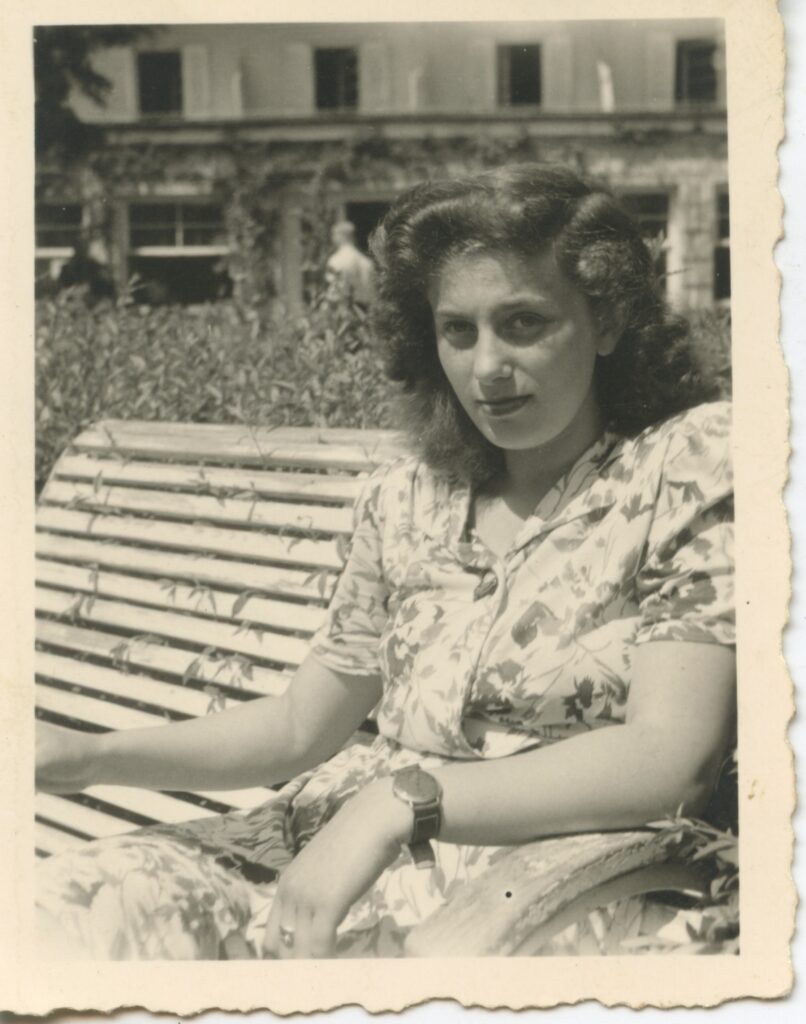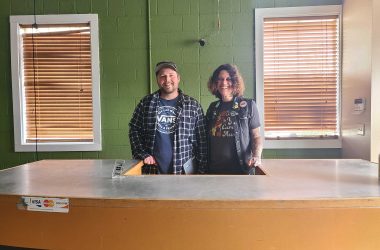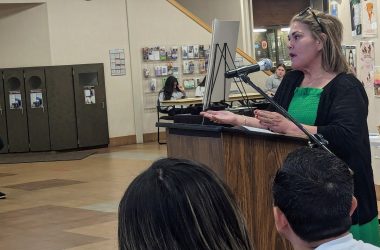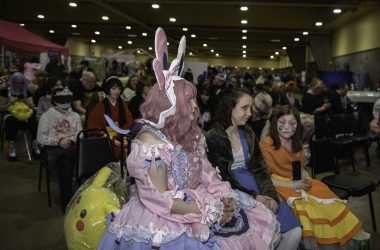Alice “Lici” Lichtenstein, grew up in Sárvár, Hungary. Born in 1928, her infancy was spent sleeping in bread baskets at her father’s kosher bakery, where the community would get challah for special occasions. The town had two synagogues for its 1,000 Jewish residents to gather at.
When she returned many decades later, nothing was left.
Michael Turner, a Scotts Mills filmmaker, said his grandmother’s childhood before the Holocaust, before her family was taken to Auschwitz by train, felt like a special, near-mythical place. For most of her life, she rarely talked about it with him.
“One time I asked her if we could go back there one day, and her face just kind of changed and she said ‘No, I’m never going back there as long as I live,’” he said.
Turner said that was when he realized there was a story there that he wanted to learn more about.
His lifelong journey of discovery, his own trip to Hungary and his grandmother’s later efforts to share her community’s story became the subject of his latest documentary film, “Monument,” which will screen at Salem Cinema on Sunday, March 24. The screening will be followed by a Q&A with Turner and Ellen Eisenberg, a Willamette University history professor who studies American Jewish History.
Tickets are $11, and available online. Salem Cinema is located at 1127 Broadway St. N.E.
In 1994, when Turner was in middle school, his grandmother had a sudden change of mind and opted to return to her hometown for the first time since she was a teenager.
“(She) was very upset to find that there was no evidence that Jewish people had ever lived there. There were no Jewish people left, as far as she could tell,” he said. The former synagogues were being used for factory storage.
When she returned home, an idea had struck: she’d fundraise to build a monument there. She began to tell her story more at home to family in the U.S. and to local media. She convinced Sárvár, which is about the size of Silverton, to pay for half of it. She worked to fundraise the rest.
“It was very emotional just seeing friends and strangers coming out of the woodwork to make a donation to her project,” he said.
She succeeded, and the monument was finished in 1996. It looks like a granite slab broken in half, with two shapes leaning toward each other. They resemble a headstone and a coffin.
“I feel I owed it to the people who died. I owed it to the people who are alive and they should see it,” she said, according to Turner. “We didn’t have any funerals. We didn’t have anybody to put them away, to pray for them. This was my funeral. A funeral for everybody.”

After the project, she did an interview with the Shoah Foundation, one of many sharing their story of surviving a genocide. It was the first time Turner, then 14, saw a movie being made. He realizes now it was a turning point for him.
When his grandmother died in 2010, he felt like filmmaking was a way to learn her story.
His first film in 2015, “The Way We Talk,” explored the way stuttering has affected his life. He didn’t act on the idea of making a film about his grandmother until several years later, after the 2018 mass shooting at the Tree of Life Synagogue in Pittsburgh. He was a new dad.
“I just really wanted my grandma there to talk to at that moment, and I wanted my daughter to know her,” he said. He started writing down what she had once shared about growing up in Hungary, which became the start of the documentary.
The film, released last year, documents his first visit to Hungary where he visited archives and synagogues, meeting with those safeguarding the history.
He also interviewed the former mayor of Sárvár, who was now embarrassed that they only paid for half of the monument in a city that, allied with Germany, had taken all of the Jewish people’s property.
He spoke with the one Jewish person remaining in the city, who didn’t want anyone to know they were Jewish.
“There is no Jewish community left in her town. The Nazis were successful there,” he said.
When Turner saw his grandmother’s monument for the first time, he said it was a powerful moment.
“It felt like a headstone for our family that I never had a chance to know,” he said.
He said the moment made him think about all of those who don’t have a family cemetery, headstone or monument.
“Here in America, we have a lot of Holocaust monuments, but practically none to the Native American or African American genocides here,” he said. “History is not set in stone. People are constantly fighting for how history is taught and how it’s portrayed in public spaces.”
He’s looking forward to the Salem Cinema event, and the discussion about history with Eisenberg. He’s been screening the film since October, and he especially hopes to see high schoolers and college students in the Salem audience to learn more about history and how it applies to today.
“I feel like what’s happening in Gaza right now also has so much to do with land, and memory, and history and people being forced out of their homes,” he said. “We’ve been dealing with the grief around that at our Q&As also.”
He’s hoping the film will be available on streaming by June. For more information, see the film’s website.
Contact reporter Abbey McDonald: [email protected] or 503-575-1251
SUPPORT OUR WORK – We depend on subscribers for resources to report on Salem with care and depth, fairness and accuracy. Subscribe today to get our daily newsletters and more. Click I want to subscribe!
Abbey McDonald joined the Salem Reporter in 2022. She previously worked as the business reporter at The Astorian, where she covered labor issues, health care and social services. A University of Oregon grad, she has also reported for the Malheur Enterprise, The News-Review and Willamette Week.









